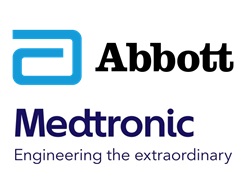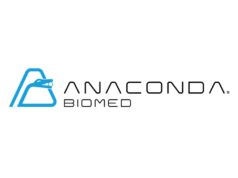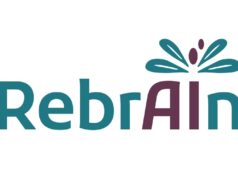 Abbott and Medtronic—two leading players in the neuromodulation space—have both announced significant CE-mark approvals relating to their respective deep brain stimulation (DBS) technologies.
Abbott and Medtronic—two leading players in the neuromodulation space—have both announced significant CE-mark approvals relating to their respective deep brain stimulation (DBS) technologies.
Abbott announced on 14 January that it has secured a CE mark for its Liberta RC DBS system to treat patients with movement disorders, including Parkinson’s disease, dystonia and essential tremor.
Liberta RC is described by the company as the “world’s smallest” rechargeable DBS device with remote programming. At approximately the height and width of a smartwatch face, the system is 32% smaller than other commonly used, implantable, rechargeable DBS devices currently available in Europe.
In addition, according to Abbott, the Liberta RC DBS system requires the fewest recharges of any approved DBS system, needing only 10 recharge sessions per year for most people, and is also the only rechargeable DBS device that is compatible with Abbott’s proprietary NeuroSphere virtual clinic—a connected care technology intended to improve communication between a patient and their doctor.
“There is no cure for Parkinson’s disease and, as clinicians, we have too few tools that can ease a person’s symptoms and improve their quality of life,” said Jan Vesper (University Hospital Düsseldorf, Düsseldorf, Germany). “The approval of the Liberta RC DBS system is therefore very encouraging, as it provides us with an important new tool that avoids the typical trade off with smaller IPGs [implantable pulse generators] requiring more recharge time. Our patients often have to travel miles to visit me or spend hours in traffic, which is made all the more difficult given their movement disorder. The ability to talk to them and adjust their device virtually, so they can remain comfortable at home, has the potential to be a major step change in how we care for these patients.”
On 13 January, Medtronic announced CE-mark approval for its BrainSense adaptive DBS (aDBS) and BrainSense electrode identifier (EI) technologies, having achieved EU Medical Device Regulation (MDR) standards. A company press release describes this as a “landmark approval” demonstrating significant advancements in personalised DBS therapy for Parkinson’s disease patients across Europe and the UK.
The company also reported that, on the same day, first-in-Europe patient programming with these technologies was performed and completed by Martijn Beudel (Amsterdam University Medical Center, Amsterdam, The Netherlands).
“Adaptive deep brain stimulation represents an exciting evolution in how we manage Parkinson’s,” Beudel commented. “By using real-time brain activity to automatically adjust stimulation, this technology enhances the ability to deliver patient-specific stimulation that can be adapted to an individual’s unique needs.”
Medtronic claims that its BrainSense aDBS technology allows stimulation to be dynamically adjusted based on each patient’s unique brain activity, both in clinical settings and daily life, while BrainSense EI can improve DBS programming by ensuring optimal initial contact selection in less time. Through incorporation of brain-computer interface (BCI) technology, the company’s Percept DBS system with BrainSense is designed to record and analyse neurological patterns to enable more tailored therapy—and, ultimately, enable improved treatment outcomes.
“The CE-mark approval of BrainSense adaptive DBS is a critical advancement in how we treat Parkinson’s disease,” said Alan Whone (University of Bristol/North Bristol NHS Trust, Bristol, UK). “Its potential to address certain challenging motor symptoms and improve day-to-day disease management offers new hope for patients and their families, broadening the transformative impact of deep brain stimulation.”










